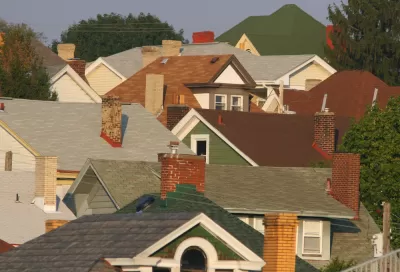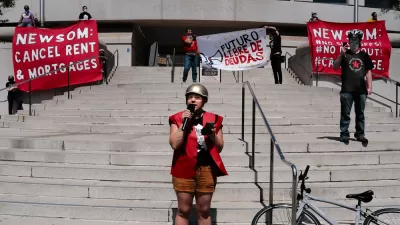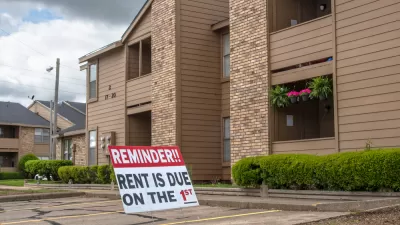To ensure families stay in their homes and stay safe during the COVID-19 pandemic, the federal government should extend the CDC's eviction moratorium and other rent relief measures through the new year.

To slow the spread of COVID-19 and protect families during the pandemic, the Centers for Disease Control and Prevention (CDC) passed an eviction moratorium in September, prohibiting landlords from evicting renters facing financial hardship. The moratorium, set to expire at the end of the year, has provided a lifeline for families who face losing their homes.
Things haven't improved for much of the country. In November, a third of Americans said they feared facing eviction or foreclosure in the next few months. With the moratorium's expiration and the end of other financial support like extended unemployment benefits looming, many Americans face deep financial uncertainty in the new year. Without a renewed moratorium and rent relief, argues Mary K. Cunningham, people who owe back rent and those having trouble making rent payments will continue to face housing insecurity as we head deeper into winter. Even with the current moratorium in place, tens of thousands of evictions have still been filed during the pandemic as landlords seek out loopholes, and without full rent relief, many tenants are sinking deeper into debt.
Federal relief would also help small landlords who rent to low-income people of color, many of whom risk losing their properties to large companies. The accelerated loss of affordable housing to redevelopment could have a powerful impact on future housing availability for low- and middle-income families.
FULL STORY: Extending the CDC Eviction Moratorium Would Keep Families Housed and Prevent the Spread of COVID-19

Study: Maui’s Plan to Convert Vacation Rentals to Long-Term Housing Could Cause Nearly $1 Billion Economic Loss
The plan would reduce visitor accommodation by 25,% resulting in 1,900 jobs lost.

Alabama: Trump Terminates Settlements for Black Communities Harmed By Raw Sewage
Trump deemed the landmark civil rights agreement “illegal DEI and environmental justice policy.”

North Texas Transit Leaders Tout Benefits of TOD for Growing Region
At a summit focused on transit-oriented development, policymakers discussed how North Texas’ expanded light rail system can serve as a tool for economic growth.

Paris Bike Boom Leads to Steep Drop in Air Pollution
The French city’s air quality has improved dramatically in the past 20 years, coinciding with a growth in cycling.

Why Housing Costs More to Build in California Than in Texas
Hard costs like labor and materials combined with ‘soft’ costs such as permitting make building in the San Francisco Bay Area almost three times as costly as in Texas cities.

San Diego County Sees a Rise in Urban Coyotes
San Diego County experiences a rise in urban coyotes, as sightings become prevalent throughout its urban neighbourhoods and surrounding areas.
Urban Design for Planners 1: Software Tools
This six-course series explores essential urban design concepts using open source software and equips planners with the tools they need to participate fully in the urban design process.
Planning for Universal Design
Learn the tools for implementing Universal Design in planning regulations.
Smith Gee Studio
Alamo Area Metropolitan Planning Organization
City of Santa Clarita
Institute for Housing and Urban Development Studies (IHS)
City of Grandview
Harvard GSD Executive Education
Toledo-Lucas County Plan Commissions
Salt Lake City
NYU Wagner Graduate School of Public Service





























